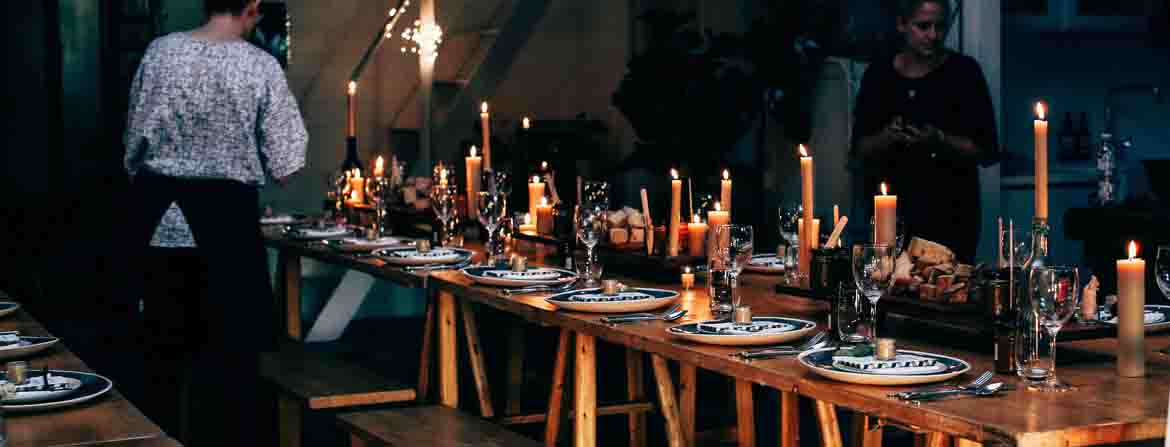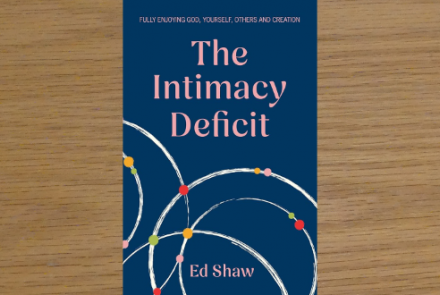Betrothed to Christ
TFT: Jeanette, I understand you’re writing a new book about the concept of how Christians are betrothed to Jesus. Please could you explain a bit about what led you to write it?
About two years ago, I was preparing some teaching for a church up in Leicester on singleness, and I thought, “Oh yes, I’ll bring in that sense of feeling wedded to Jesus, which happened back at my baptism by immersion some 35 years earlier.” In those days, you wore long heavy white gowns, so it really gave that impression (for me anyway) of being married. As I was preparing it, I just sensed the Lord saying, “betrothed not married, betrothed.” I thought, “how odd, after 35 years.” All of a sudden, my thinking was now being challenged. The only thing I knew about betrothal was the Joseph and Mary story. How Mary is pregnant, and how Joseph was betrothed to her and thought about divorcing her quietly.
I started looking into what betrothal actually meant. Was it only like the engagements that we have today, or was it something significantly more? I started looking into the ancient Jewish marriage ceremony, and the different stages that used to happen. These days, it’s all in one service, but it was quite a drawn-out period in biblical times. I started looking, and what was so incredible was that this had so many parallels with the Bible’s salvation story. The father and his son choose the bride, or the father determines whom he deems to be suitable for his son. It’s even down to the specific words that are used: the Ketubah (the contract), the Mikveh (the bath used for immersion to achieve ritual purity) and all of that. I was wondering what was the relevance of all this for me? Of course, knowing that I am not married but am betrothed to Jesus means the first formal part has happened. Next, in the ancient Jewish ceremony, the son goes back to the father’s house to prepare what’s known as a Huppah. This is like an extra room; a love nest for him and his bride.
Meanwhile, the betrothed stays where she is with her parents, although now she identifies with her husband-to-be. It appears like nothing’s happened. But, when she leaves the house, she veils her face so that everyone sees she is set apart and unavailable.
As I thought about all the symbolism of betrothal, the whole thing really excited me. I thought, “I have received gifts to prepare myself for the great banquet; the time of seeing Jesus face to face; the wedding feast of everlasting life with the Father and the Son.”
TFT: Her change in status was at the time of the betrothal, rather than on the wedding day?
Yes, that shift in her belonging had already happened at the signing of the betrothal. The son would come to the proposed bride, and her family, with a formal document (the “Ketubah”). These were his promises to her, “This is what I offer as your groom; these are my promises; this my covenant.” If they were acceptable to her, she would then sign the Ketubah. She had the choice: it was not an arranged marriage where the bride had no choice. This was not a forced marriage; she could say “No”. And then the ‘bride price’ was paid. It was money or property given to the father of the bride to make up for his loss, as the daughter was going to live elsewhere. He was losing her service. So, the bride price depended on how much the groom held this woman in value. When you think of the price that Christ paid, His own blood as He laid down His life, that’s the value He places on us as His chosen ones. It is not about how valuable I think I am. It is what value He has placed on me. This is what He was willing to pay in order to make me His bride.
TFT: And he paid that price when they signed the Ketubah, is that right?
Yes, it was paid for at the start of the betrothal. The couple would then drink a cup of wine to seal the arrangement, which is the equivalent of the “I do”. And the betrothal period was about a year to 18 months. It was up to the father to determine when the room was ready, and then he would send his son to collect his bride. What blows my mind is this: often, the groom would come with his mates at night and come and collect the bride and would knock on the door. At that stage, the bride could then decide “No”. She has had a year or 18 months. Who might have turned her eyes in that time? Has she remained faithful? Has she focused on what is coming rather than what is now? Is she still set apart in her heart, her mind, her strength? Is she driven by what is coming rather than what she sees around her now? Again, she had the opportunity to turn him down at that point.
I think of the parable of the wise and the foolish virgins. The wise are the ones who have continually prepared for the groom’s coming, and therefore there is oil in the lamp. In contrast, the foolish ones haven’t actually kept those lamps full of oil. The lamps are empty. They have not gone on preparing themselves for what is coming. I think that’s quite a sombre thought.
TFT: It ties in with our walk of salvation. It’s that kind of active waiting that you talk about with the bride: if she just lets her affections wander, then maybe she won’t want this bridegroom at the end, because she’s allowed herself to be distracted and the troubles and cares of this world have taken her over.
Yes, it’s a big deal to give up all that we have known for a person whom we don’t really know. He has chosen us, but what do we know about him? So that time of betrothal is a time of getting to know him through the gifts that he sends, through our own preparations, and what we hear and learn about him. And that strengthens us and reminds us that this world is not everything.
TFT: I wonder if some people might say, “Jeanette, that’s all very nice thinking ahead to the life to come, but I need a real flesh and blood person in this life to keep me company and to listen to my woes at the end of a hard day. What would you say to someone like that?”
I totally get it! I wouldn’t minimise that for a second. We have all just been through a year (2020-21) of very limited touch. Single people like me live alone, and work alone. So how do we then answer those needs as best we can? I think there will always be a sense of loss of intimacy. In marriage, the two become one in every sense of the word. We do not have that as single people. Therefore, how, in a godly way, do I meet as much of that as I can, knowing there will always be a hole? CS Lewis wrote, “Creatures are not born with desires unless satisfaction for those desires exists. ... If I find in myself a desire which no experience in this world can satisfy, the most probable explanation is that I was made for another world.” So, even in the best of marriages, I am sure there is that sense of, “there should be more than this.”
I come home sometimes and think, “I really need to talk this out.” I have no one to talk with immediately, but I have a small group of people whom I can confide in. It may not be there and then. It may have to be a day later, or whatever. Likewise, if I want to celebrate something fab, there is not an awful lot of fun blowing a party blower on my own! I’ve always found pets helpful; dogs just think you’re awesome, so I’ve always found them good. It is a matter of knowing that I’m going to have a nucleus of ‘without’ in my life and then finding ways of connecting with others in this life whilst holding on to our great hope for the life to come.
TFT: Jeanette, thank you very much for all that food for thought. I wish you well as you craft these into a book, which we’re very much looking forward to reading.
This article was originally published in the winter 2021 edition of the TFT magazine, Ascend. Click the button below to download your copy.
Download the winter 2021 edition of Ascend
A conversation with the author...
Articles in Ascend often need to be ruthlessly edited down to fit within the required word count. To give space to discuss certain articles in greater depth, the TFT staff team will be recording occasional podcasts under the banner “Ascend Higher”, covering the issues raised in a more conversational style. To hear it for yourself, you can use the audio player below






